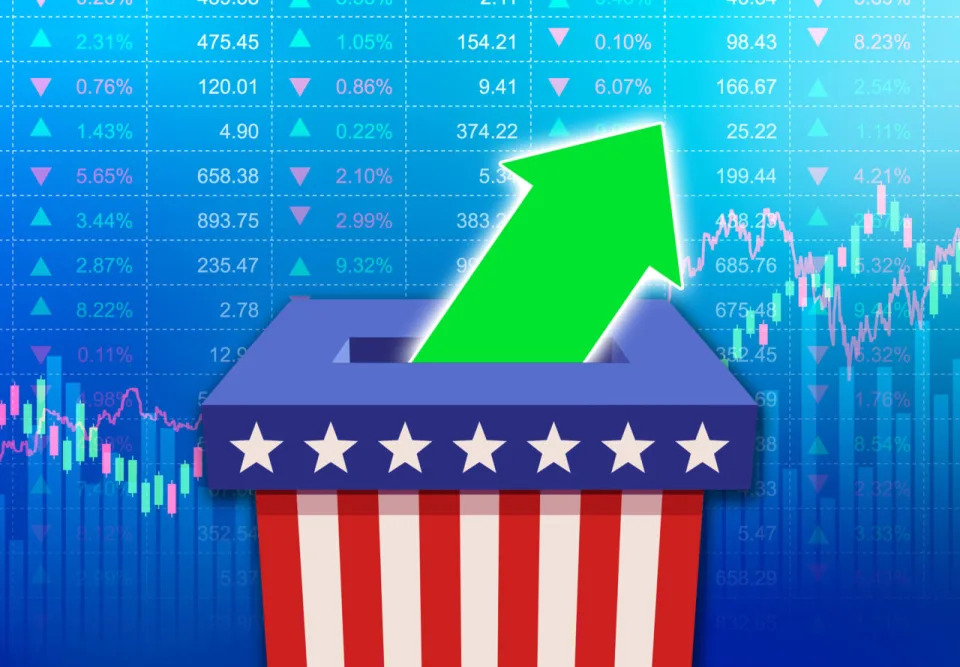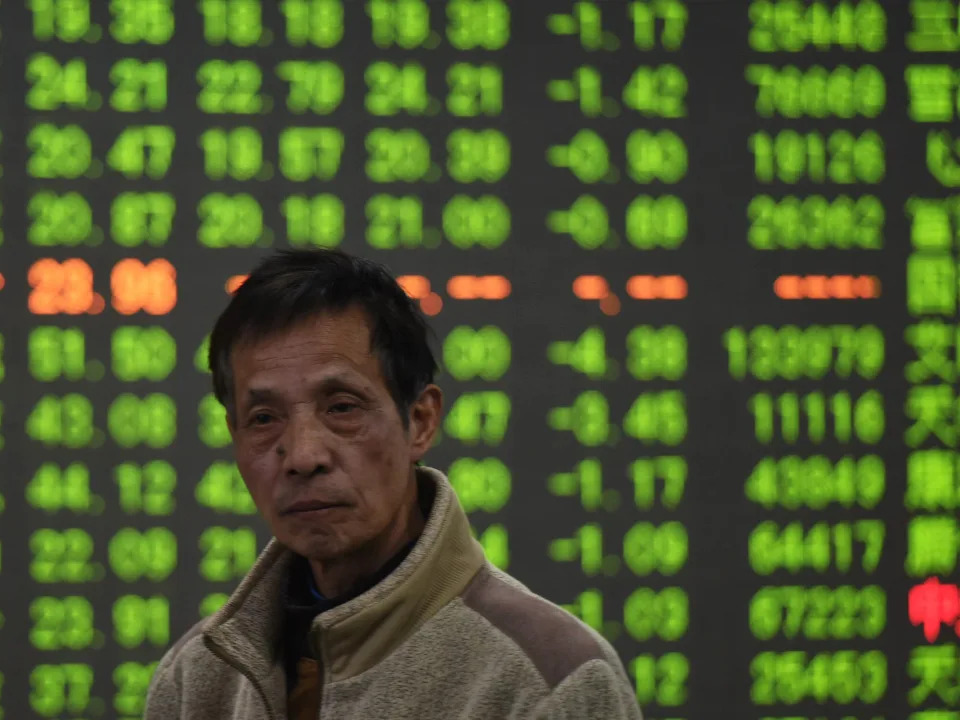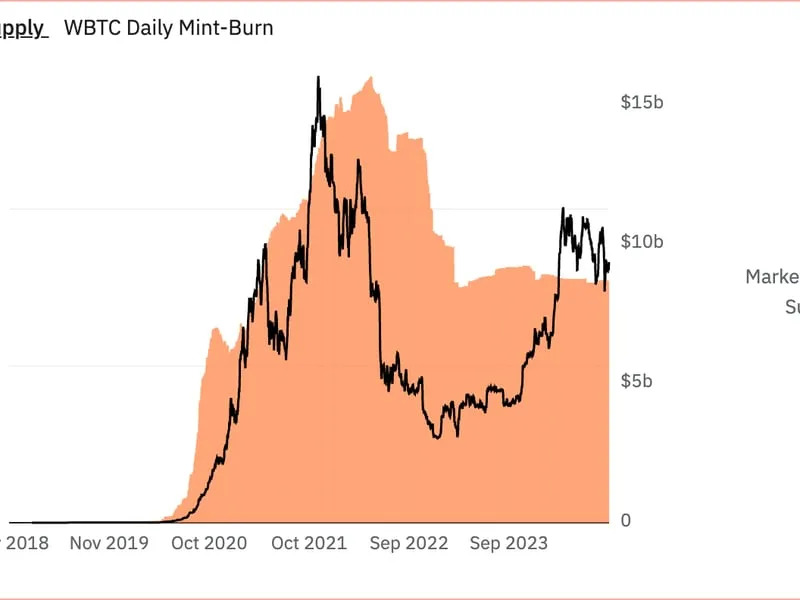
Stock markets appeared to breathe a sigh of relief when the result of the 2024 U.S. presidential election came in.
The Dow Jones Industrial Average DJIA ended the election week 4.6% higher, the S&P 500 SPX ended that week 4.7% higher and the Nasdaq Composite COMP was up 5.7%. All three of the indexes closed at record highs the Friday after the election.
However, equities gave up a chunk of their gains the following week as investors asked themselves whether the postelection rally could continue, and whether President-elect Donald Trump is as good for the market as many people think.
Read: The Fed interrupted the stock market’s Trump rally. What comes next.
The looming election was a major theme for investors throughout 2024. It led to the manifestation of both Trump trades and Harris trades as investors tried to position themselves based on which candidate they saw on the inside track. Some investors were cautious about investing before the election , while others didn’t change their investing strategy at all.
Polling showed a competitive race between the two candidates from the time President Joe Biden withdrew and threw his support behind Vice President Kamala Harris , and that uncertainty over who would be president led to plenty of investor anxiety.
“We always see significant anxiety over uncertain election results. This October, S&P was down 1%. We haven’t had a [positive] October during an election year for 20 years,” Steven Wieting, chief economist and chief investment strategist for Citi Wealth, told MarketWatch.
According to Dow Jones Market Data, the last time the S&P 500 grew in value during October ahead of a presidential election was in 2004 , when it rose 4.1%. But in October 2000, the prior presidential-election year, it dropped 8.3%.
“When we get past these events and we have some clarity on outcomes, that’s usually consistent with some sort of net market bounce,” Wieting said.
Markets don’t like uncertainty, so it’s not strange that they would bounce back once that uncertainty gets cleared up. But, according to Wieting, this postelection rally goes beyond that. Certain assets and sectors have reacted definitively with Trump’s public statements.
For example, cryptocurrencies have skyrocketed since Trump won the election. Bitcoin BTCUSD hit all-time highs above $90,000 and dogecoin more than doubled . This comes after Trump, a former critic who’d gone as far as to label bitcoin a scam, repositioned himself as a crypto-friendly candidate .
The U.S. dollar DXY rallied, as well, reaching highs not seen in over a year . Investors were betting that a Trump presidency could boost the dollar thanks to factors like import tariffs and other purportedly “America first” policies.
Sectors like financials and information technology also rallied off the hope that Trump’s presidency would lead to deregulation.
“I think the financial sector is the biggest beneficiary of the Trump policies,” Marco Pirondini, chief investment officer at Amundi US, told MarketWatch. “I don’t know to what degree they will be enacted, but this is a sector than benefits from almost any one of them.”
On top of that, the Republican sweep of the executive and legislative branches seems to point to the extension of Trump’s 2017 tax-code redo . Lower corporate tax rates could help boost corporate earnings for companies across the board, which analysts see as bullish for the stock market .
Retail investors are feeling bullish about Trump’s presidency, too. In a retail investor survey by Finimize, 72.2% of respondents said that they believe Trump’s win is good for the stock market, with 42.1% saying it “will boost investor confidence.”
All of these factors helped contribute to the postelection rally that investors saw, but, with that initial exuberance out of the way, markets have retreated as investors try to figure out how much farther the rally can go.
“You put all these factors together and you’re going to get a strong market, and that’s what we have right now,” Robert Conzo, chief executive and managing director of the Wealth Alliance, told MarketWatch. “I think the bigger question is, does this market have legs?”
Lingering questions remain
With some uncertainty gone after Trump’s win, new uncertainty has taken its place.
“We’re digesting a great deal of news in markets,” Wieting told MarketWatch.
Wieting said that he’s waiting to see what the incoming administration’s actual policies are on immigration and tariffs, two things that Trump campaigned on. Depending on the specific policies, these two things could affect both markets and inflation . Wieting said that we may get more insight from whom Trump appoints in the coming weeks, notably to head the Treasury Department.
“I think [tariffs] will be a recurrent thing for the administration starting from the very beginning,” Pirondini said. “We will see that cause some volatility. But I also think that the markets have learned that this is used as a negotiating tactic.”
Pirondini also said that immigration policy could have minimal to noticeable affects on the economy depending on its scope and who ends up being deported, but, given that wide range of potential outcomes, investors are left with more uncertainty.
Conzo added that geopolitical tensions are giving investors pause. When Trump enters office, he will be faced with wars between Ukraine and Russia, and Israel and its neighbors. On top of that, Trump is a known critic of NATO , so how he navigates relationships with U.S. allies will be closely watched.
But what keeps Conzo up at night is the U.S. debt and budget deficit.
Economists have sounded the alarm about the government’s deficit spending and growing federal debt. Last month deficit spending reached $1.8 trillion , and it cost taxpayers $882 billion this year just to pay the interest on that debt. This is something that makes Wall Street very nervous .
Trump’s proposed solution to the deficit spending is creating a “Department of Government Efficiency” and appointing Elon Musk and Vivek Ramaswamy to run it, but how this new entity will be structured and operate is yet to be seen. According to Musk, it won’t be pretty .
So while Trump’s win sparked an initial postelection rally, investors are now left with lingering questions as to what it’ll actually mean for markets.
In the words of Conzo, “There’s always uncertainty.”
Futures were mixed Monday morning ahead of the opening bell. Dow futures were down 0.2% while Nasdaq futures were up 0.2%. Futures on the S&P 500 were down less than 0.1%.
Live coverage: S&P, Dow edging lower after worst stock-market week in 2 months





